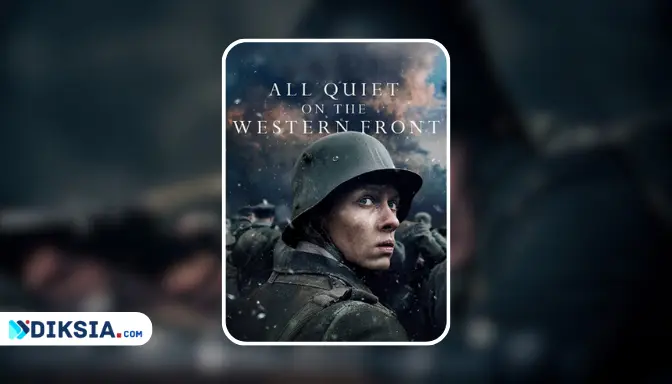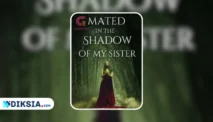Diksia.com - All Quiet on the Western Front is more than just a book or a movie. It is a powerful and poignant story that captures the horrors and the heroism of the First World War. It is also a timeless and universal message that resonates with generations of readers and viewers across the world.
The Novel: A Literary Sensation
All Quiet on the Western Front was written by Erich Maria Remarque, a German veteran of World War I. He based the novel on his own experiences as a soldier on the Western Front, where he witnessed the brutal and senseless carnage of trench warfare. The novel follows the life of Paul Bäumer, a young German soldier who volunteers for the army with his classmates, only to face the harsh reality of war. Paul and his comrades endure hunger, disease, shelling, gas attacks, and hand-to-hand combat. They also struggle with the loss of their innocence, their identity, and their humanity.
The novel was first published in 1928 in a German newspaper, and then in book form in 1929. It was an instant bestseller, selling 2.5 million copies in 22 languages in its first 18 months. It was also a controversial and provocative work, as it challenged the nationalist and patriotic propaganda that glorified the war. It exposed the futility and the tragedy of the war from the perspective of the ordinary soldiers, who were often treated as cannon fodder by their superiors and their governments. It also showed the common humanity of the enemy soldiers, who were not evil or monstrous, but simply fellow victims of the war.
The novel was banned and burned in Nazi Germany, as it was seen as unpatriotic and defeatist. It was also censored and criticized in other countries, especially those that fought against Germany in the war. However, the novel also received praise and acclaim from many critics and readers, who recognized its literary merit and its moral courage. It is widely regarded as one of the greatest war novels of all time, and one of the most influential anti-war works in history.
The Films: A Cinematic Legacy
All Quiet on the Western Front has been adapted into three films, each of which has been acclaimed and awarded. The first film was made in 1930 by the American director Lewis Milestone. It was one of the first sound films, and one of the first films to use realistic sound effects and camera techniques to depict the war. It was also one of the first films to show the war from the enemy’s point of view, as it followed the German soldiers rather than the Allied ones. The film was a critical and commercial success, winning two Academy Awards for Best Picture and Best Director. It was also praised for its faithful and respectful adaptation of the novel, and its powerful and moving portrayal of the war and its effects on the soldiers.
The second film was made in 1979 by the British-American director Delbert Mann. It was a television film, and it starred Richard Thomas as Paul Bäumer. It was also a faithful and respectful adaptation of the novel, and it focused on the psychological and emotional aspects of the war and its impact on the soldiers. It was also a critical and commercial success, winning a Golden Globe Award for Best Motion Picture Made for Television and an Emmy Award for Outstanding Film Editing.
The third film was made in 2022 by the German director Edward Berger. It was a German-language film, and it starred Felix Kammerer as Paul Bäumer. It was also a faithful and respectful adaptation of the novel, and it used modern technology and techniques to create a realistic and immersive experience of the war. It was also a critical and commercial success, winning four Academy Awards for Best Picture, Best Director, Best Adapted Screenplay, and Best Cinematography. It was also praised for its authentic and nuanced depiction of the German soldiers and their culture, and its universal and timeless message of war and humanity.
The Cultural Phenomenon: A Lasting Impact
All Quiet on the Western Front is more than just a novel or a film. It is a cultural phenomenon that has influenced and inspired countless works of art and literature, as well as social and political movements. It is a symbol of the horror and the tragedy of war, as well as the hope and the dignity of humanity. It is a testament to the power and the responsibility of storytelling, as well as the importance and the value of history. It is a reminder of the lessons and the legacy of the First World War, as well as the relevance and the urgency of peace and justice in today’s world.
All Quiet on the Western Front is a timeless tale of war and humanity. It is a story that speaks to every generation and every nation. It is a story that deserves to be read and watched and remembered. It is a story that matters.






